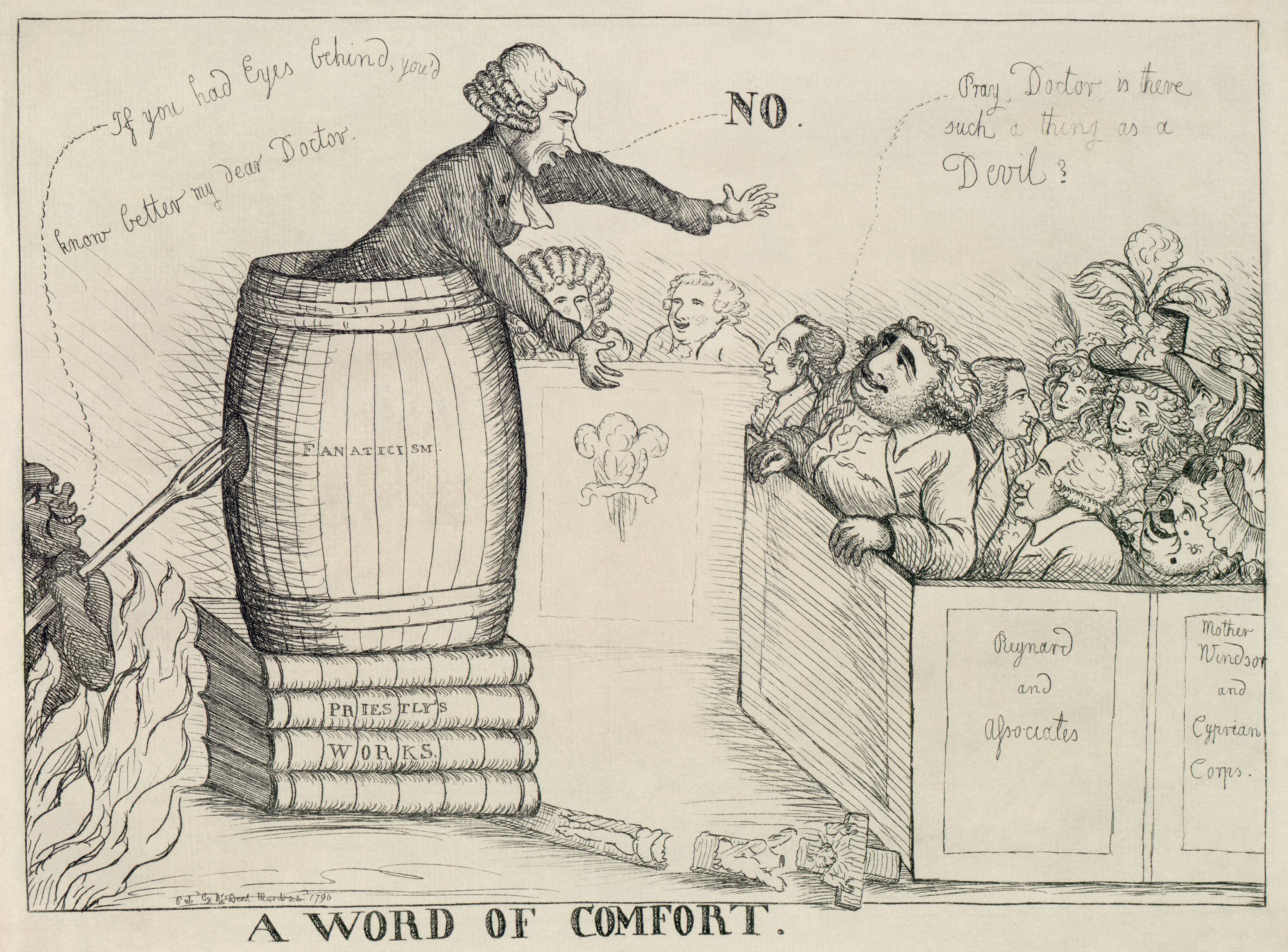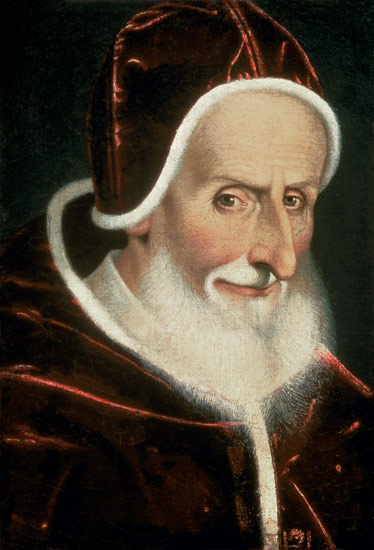|
English Penal Laws
In English history, the penal laws were a series of laws that sought to uphold the establishment of the Church of England against Catholicism and Protestant nonconformists by imposing various forfeitures, civil penalties, and civil disabilities upon these dissenters. The penal laws in general were repealed in the early 19th century during the process of Catholic Emancipation. Penal actions are civil in nature and were not English common law. Marian Persecutions In 1553, following the death of her half brother, Edward VI, and deposing his choice of successor, Lady Jane Grey, Mary I of England seized the throne, and soon after repealed the religious legislation of her brother and father, Henry VIII, through the First Statute of Repeal(1 Mary, st. 2, c. 2). Restoring England, Wales and Ireland to the Roman Catholic communion. An English inquisition was established to identify exile, convert, or punish non conforming Catholics, with over 300 Protestant dissenters branded heretics ... [...More Info...] [...Related Items...] OR: [Wikipedia] [Google] [Baidu] |
History Of England
England became inhabited more than 800,000 years ago, as the discovery of stone tools and footprints at Happisburgh in Norfolk have indicated.; "Earliest footprints outside Africa discovered in Norfolk" (2014). BBC News. Retrieved 7 February 2014. The earliest evidence for early modern humans in Northwestern Europe, a jawbone discovered in Devon at Kents Cavern in 1927, was re-dated in 2011 to between 41,000 and 44,000 years old. Continuous human habitation in England dates to around 13,000 years ago (see Creswellian), at the end of the Last Glacial Period. The region has numerous remains from the Mesolithic, Neolithic and Bronze Age, such as Stonehenge and Avebury. In the Iron Age, all of Britain south of the Firth of Forth, was inhabited by the Celtic people known as the Britons, including some Belgic tribes (e.g. the Atrebates, the Catuvellauni, the Trinovantes, etc.) in the south east. In AD 43 the Roman conquest of Britain began; the Romans maintained contr ... [...More Info...] [...Related Items...] OR: [Wikipedia] [Google] [Baidu] |
Revival Of The Heresy Acts
In November 1554, the Revival of the Heresy Acts (1 & 2 Ph. & M. c.6) revived three former Acts against heresy; the letters patent of 1382 of King Richard II, an Act of 1401 of King Henry IV, and an Act of 1414 of King Henry V. All three of these laws had been repealed under King Henry VIII and King Edward VI Edward VI (12 October 1537 – 6 July 1553) was King of England and Ireland from 28 January 1547 until his death in 1553. He was crowned on 20 February 1547 at the age of nine. Edward was the son of Henry VIII and Jane Seymour and the first E .... This Act reflects Queen Mary I's concern for increased heresy and the lack of authority to deal with it. Edward and his father had sponsored the Reformation in stages, but Mary had always been Roman Catholic and considered Protestants to be heretics, and needed this law to pursue her religious policies. The Act stated its purpose: For the eschewing and avoiding of errors and heresies, which of late have risen, grown, and ... [...More Info...] [...Related Items...] OR: [Wikipedia] [Google] [Baidu] |
Corporation Act
The Corporation Act of 1661 was an Act of the Parliament of England (13 Cha. II. St. 2 c. 1). It belonged to the general category of test acts, designed for the express purpose of restricting public offices in England to members of the Church of England. Though commonly spoken of as one of the "Penal Laws", and enumerated by Butler in his ''Historical Account of the Laws against the Roman Catholics of England'', it was not directly aimed against them, but against the Presbyterians. It was passed in December 1661, the year after the Restoration, by Charles II. The Cavalier Parliament aimed at restoring England to its state before the time of the Commonwealth. It required all the prudence of the Earl of Clarendon, the chancellor, to restrain them. The Corporation Act represents the limit to which he was prepared to go in endeavouring to restrict the power of the Presbyterians. They were influentially represented in the government of cities and boroughs throughout the country, an ... [...More Info...] [...Related Items...] OR: [Wikipedia] [Google] [Baidu] |
Edward Hyde, 1st Earl Of Clarendon
Edward Hyde, 1st Earl of Clarendon (18 February 16099 December 1674), was an English statesman, lawyer, diplomat and historian who served as chief advisor to Charles I during the First English Civil War, and Lord Chancellor to Charles II from 1660 to 1667. Hyde largely avoided involvement in the political disputes of the 1630s until elected to the Long Parliament in November 1640. Like many moderates, he felt attempts by Charles to rule without Parliament had gone too far but by 1642 felt its leaders were, in turn, seeking too much power. A devout believer in an Episcopalian Church of England, his opposition to Puritan attempts to reform it drove much of his policy over the next two decades. He joined Charles in York shortly before the First English Civil War began in August 1642, and initially served as his senior political advisor. However, as the war turned against the Royalists, his rejection of attempts to build alliances with Scots Covenanters or Irish Catholics ... [...More Info...] [...Related Items...] OR: [Wikipedia] [Google] [Baidu] |
Test Act
The Test Acts were a series of English penal laws that served as a religious test for public office and imposed various civil disabilities on Roman Catholics and nonconformists. The underlying principle was that only people taking communion in the established Church of England were eligible for public employment, and the severe penalties pronounced against recusants, whether Catholic or nonconformist, were affirmations of this principle. Similar laws were introduced in Scotland with respect to the Presbyterian Church of Scotland. In practice nonconformists were often exempted from some of these laws through the regular passage of Acts of Indemnity: in particular, the Indemnity Act 1727 relieved Nonconformists from the requirements in the Test Act 1673 and the Corporation Act 1661 that public office holders must have taken the sacrament of the Lord's Supper in an Anglican church. Except at Oxbridge, where nonconformists and Catholics could not matriculate (Oxford) or gradu ... [...More Info...] [...Related Items...] OR: [Wikipedia] [Google] [Baidu] |
Charles II Of England
Charles II (29 May 1630 – 6 February 1685) was King of Scotland from 1649 until 1651, and King of England, Scotland and Ireland from the 1660 Restoration of the monarchy until his death in 1685. Charles II was the eldest surviving child of Charles I of England, Scotland and Ireland and Henrietta Maria of France. After Charles I's execution at Whitehall on 30 January 1649, at the climax of the English Civil War, the Parliament of Scotland proclaimed Charles II king on 5 February 1649. But England entered the period known as the English Interregnum or the English Commonwealth, and the country was a de facto republic led by Oliver Cromwell. Cromwell defeated Charles II at the Battle of Worcester on 3 September 1651, and Charles fled to mainland Europe. Cromwell became virtual dictator of England, Scotland and Ireland. Charles spent the next nine years in exile in France, the Dutch Republic and the Spanish Netherlands. The political crisis that followed Cromwell's death i ... [...More Info...] [...Related Items...] OR: [Wikipedia] [Google] [Baidu] |
Regnans In Excelsis
''Regnans in Excelsis'' ("Reigning on High") is a papal bull that Pope Pius V issued on 25 February 1570. It excommunicated Queen Elizabeth I of England, referring to her as "the pretended Queen of England and the servant of crime", declared her a heretic, and released her subjects from allegiance to her, even those who had "sworn oaths to her", and excommunicated any who obeyed her orders: "We charge and command all and singular the nobles, subjects, peoples and others afore said that they do not dare obey her orders, mandates and laws. Those who shall act to the contrary we include in the like sentence of excommunication." Among the queen's alleged offences, "She has removed the royal Council, composed of the nobility of England, and has filled it with obscure men, being heretics; oppressed the followers of the Catholic faith; instituted false preachers and ministers of impiety; abolished the sacrifice of the mass, prayers, fasts, choice of meats, celibacy, and Catholic ceremo ... [...More Info...] [...Related Items...] OR: [Wikipedia] [Google] [Baidu] |
Excommunicated
Excommunication is an institutional act of religious censure used to end or at least regulate the communion of a member of a congregation with other members of the religious institution who are in normal communion with each other. The purpose of the institutional act is to deprive, suspend, or limit membership in a religious community or to restrict certain rights within it, in particular, those of being in communion with other members of the congregation, and of receiving the sacraments. It is practiced by all of the ancient churches (such as the Catholic Church, Oriental Orthodox churches and the Eastern Orthodox churches) as well as by other Christian denominations, but it is also used more generally to refer to similar types of institutional religious exclusionary practices and shunning among other religious groups. The Amish have also been known to excommunicate members that were either seen or known for breaking rules, or questioning the church, a practice known as shu ... [...More Info...] [...Related Items...] OR: [Wikipedia] [Google] [Baidu] |
Pope Pius V
Pope Pius V ( it, Pio V; 17 January 1504 – 1 May 1572), born Antonio Ghislieri (from 1518 called Michele Ghislieri, O.P.), was head of the Catholic Church and ruler of the Papal States from 8 January 1566 to his death in May 1572. He is venerated as a saint of the Catholic Church. He is chiefly notable for his role in the Council of Trent, the Counter-Reformation, and the standardization of the Roman Rite within the Latin Church. Pius V declared Thomas Aquinas a Doctor of the Church. As a cardinal, Ghislieri gained a reputation for putting orthodoxy before personalities, prosecuting eight French bishops for heresy. He also stood firm against nepotism, rebuking his predecessor Pope Pius IV to his face when he wanted to make a 13-year-old member of his family a cardinal and subsidize a nephew from the papal treasury. [...More Info...] [...Related Items...] OR: [Wikipedia] [Google] [Baidu] |
Act Of Uniformity 1558
The Act of Uniformity 1558 was an Act of the Parliament of England, passed in 1559, to regularise prayer, divine worship and the administration of the sacraments in the Church of England. The Act was part of the Elizabethan Religious Settlement in England instituted by Elizabeth I, who wanted to unify the church. Other Acts concerned with this settlement were the Act of Supremacy 1558 and the Thirty-Nine Articles. Background Elizabeth was trying to achieve a settlement after 30 years of turmoil during the reigns of Henry VIII, Edward VI and Mary I, during which England had swung from Roman Catholicism to Protestantism and back to Catholicism. The outcome of the Elizabethan Settlement was a sometimes tense and often fragile union of High Church and Low Church elements within the Church of England and Anglicanism worldwide. The Act The Act set the order of prayer to be used in the ''Book of Common Prayer''. All persons had to attend Anglican services once a week or be fined 12 ... [...More Info...] [...Related Items...] OR: [Wikipedia] [Google] [Baidu] |





